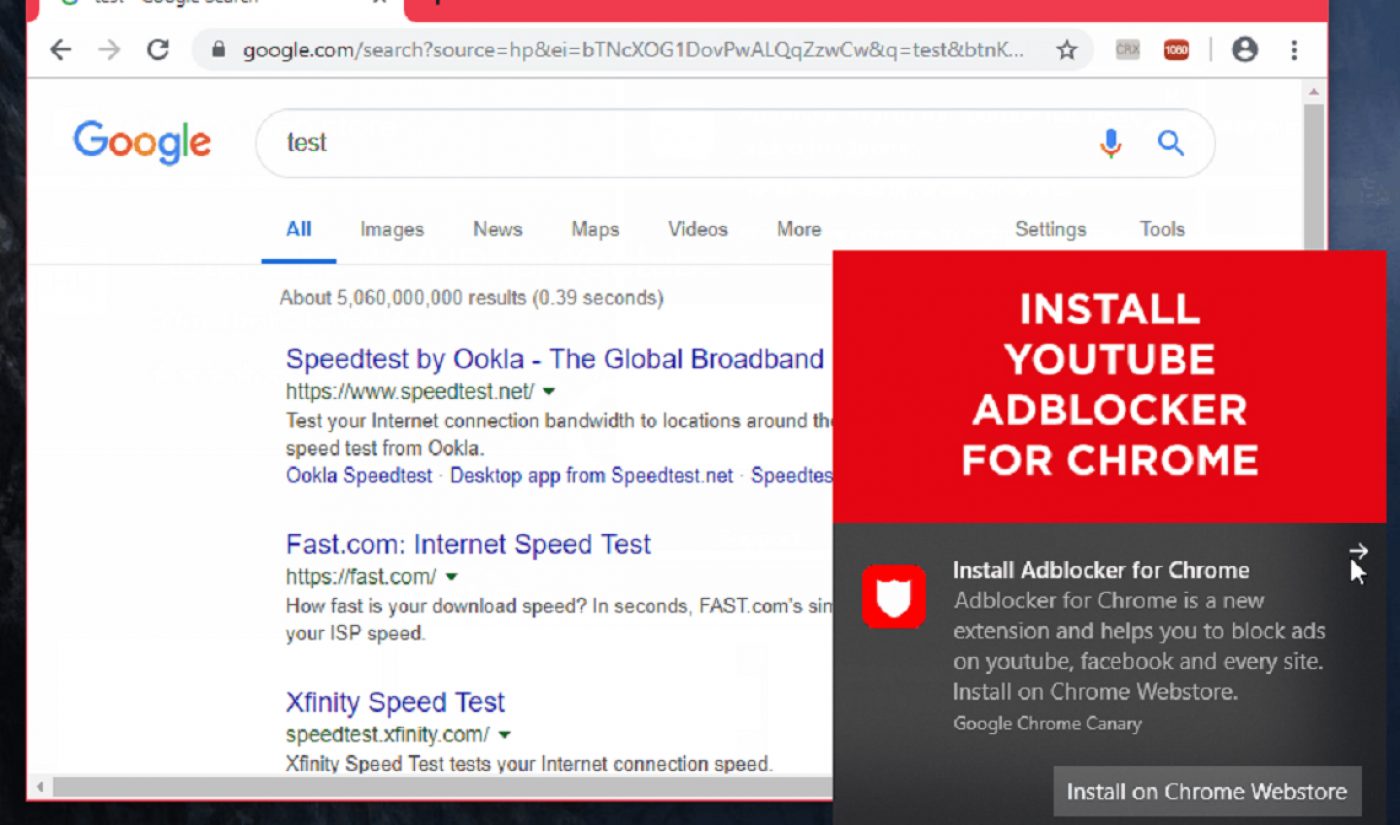A browser extension that let its nearly 4.2 million users automatically stream YouTube videos at the highest definition has been pulled from Google’s Chrome Web Store.
Once installed on Google’s Chrome browser, the free extension Automatic 4K/HD for YouTube allowed users to choose their preferred video playback quality, then streamed all YouTube videos at that quality automatically. The extension was designed to prevent a YouTube functionality that lets the platform drop the playback quality of videos a user is watching if, for example, their internet is deemed too slow to support a high resolution.
Automatic 4K/HD for YouTube had been running reliably for years when it suddenly began spamming its nearly 4.2 million users with popup ads for another free Chrome extension, ironically named Adblocker for Chrome, ZDNet reports.

Subscribe to get the latest creator news
The ads were more insidious than your average internet popup. Because Automatic 4K/HD for YouTube was hooked into Chrome, it was able to take advantage of Chrome’s desktop notifications, and used those to spam users with ads. You can see the desktop notification popups in action in the GIF below (recorded by ZDNet):

Some users on Reddit claimed these ads were popping up as frequently as every hour. As you can see from the GIF, users who downloaded Automatic 4K/HD for YouTube were almost immediately hit by an ad asking them to download Adblocker for Chrome.
At the time of ZDNet’s report, Automatic 4K/HD for YouTube was still available in the Chrome Web Store, but it was pulled down (either by Google or by its developer) sometime Friday morning. As Gizmodo points out, Automatic 4K/HD for YouTube’s practice of jacking into desktop notifications violates Google’s developer policies, which do not allow deceptive or abusive ads.
Neither extension had developer information listed in the Google Chrome store or in the extensions’ code (where it’s common for developers to include their names or handles), per ZDNet. So, there’s no way to know if the extensions were developed by the same person. But spamming more than 4 million people with constant ads that happen to advertise a new extension to get rid of those ads…well, that’s a pretty effective way to get eyeballs on said extension.
Of course, it’s also an effective way to alienate your userbase.
Adblocker for Chrome is still available on the Web Store.








